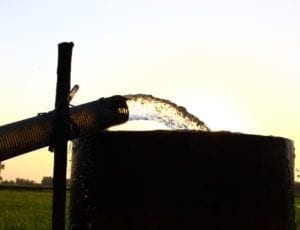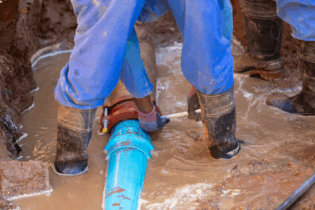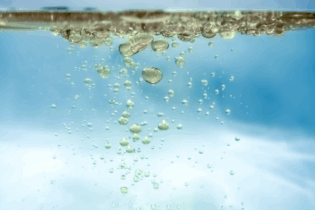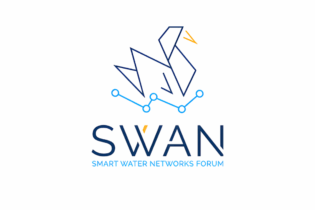Over 12 700 households in Maquassi Hills Local Municipality stand to benefit from the R118 006 349,65 Bulk Water Supply Scheme, funded by the Department of Water and Sanitation (DWS).
The project is funded through the Regional Bulk Infrastructure Grant (RBIG) and is co-funded through Water Services Infrastructure Grant (WSIG) and Municipal Infrastructure Grant (MIG) The project which is currently in construction is projected to provide and increase water supply in Wolmaraanstad, Tswelelang, Makwassie, and Lebaleng areas which would constitute more than 121 074 people in 2039. The laying of a new pipeline between the Buisfontein and Tswelelang reservoirs will increase water supply and also provide new settlements with sufficient water supply, not only for the new settlements or due to growing demand but also for the previously disadvantaged. This will function together with the existing pipeline especially since the existing Buisfontein reservoir bypass between the reservoir inlet and new outlet will also be upgraded. An existing outlet from Buisfontein reservoir and inlet to Tswelelang reservoir will also add to the upgrade. The economic activities in Maquassi Hills Local Municipality which serves the agricultural sector, agroindustries, and mining result in the greatest water consumption water. An increased water demand is also exacerbated by migration into the economic hub which has resulted in mushrooming of a new RDP settlement that has been without water since its establishment.However, there will be enough flow to circulate in the sewer system after the commissioning of the pipeline.
The existing reservoir will have the capacity to store water for 24 hours during the shutdown. This means that the area which is currently supplied through tinkering will benefit as well. Nevertheless, some of the areas are supplied from the groundwater source, boreholes, and thorough rationalization of water supply. Even though COVID-19 related cases challenges might be inevitable, the portion of the pipeline is at 75% which anticipates completion at the end of the financial year 2021/2022. Currently, 10 SMME’s been appointed as contributions of 30% locals. The new Waste Water Treatment Works was commissioned in the year 2019 and launched by Minister Lindiwe Sisulu. The Plant is not operating at full capacity because most of the new housing developments are not connected to the main sewer network due to limited water supply. Infrastructure investment is key to the country’s economic recovery worsened by the devastation of COVID-19. The water sector institutions have a key role to play in this investment program, but they cannot do it alone. A strong intergovernmental and public cooperation is necessary if we must continue to build sustainable planning, partnerships, and managing budgets for joint investments. The building of these Infrastructures takes years to be constructed and therefore the Municipality and the community should safeguard all water infrastructures to ensure that they provide long term water supply for all..






